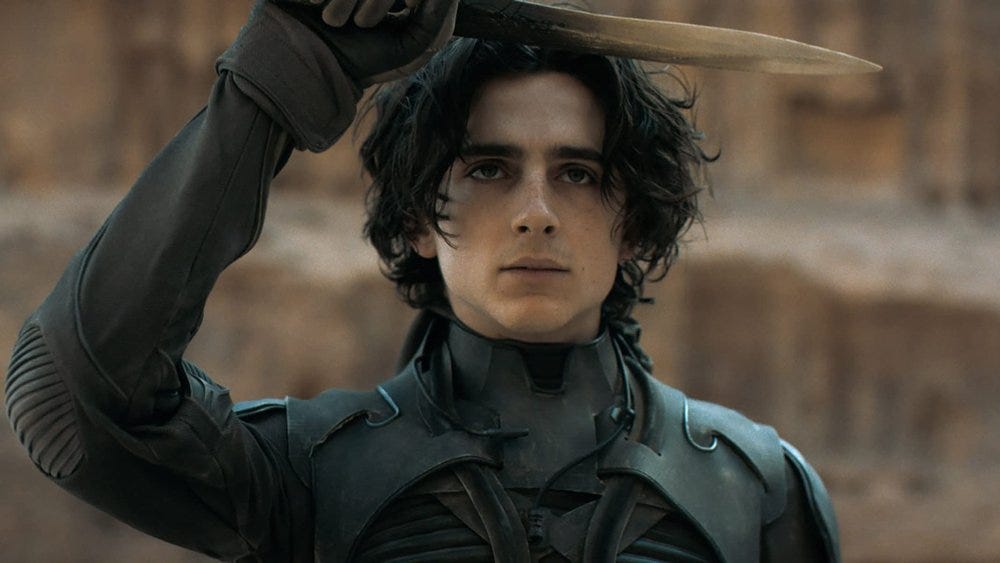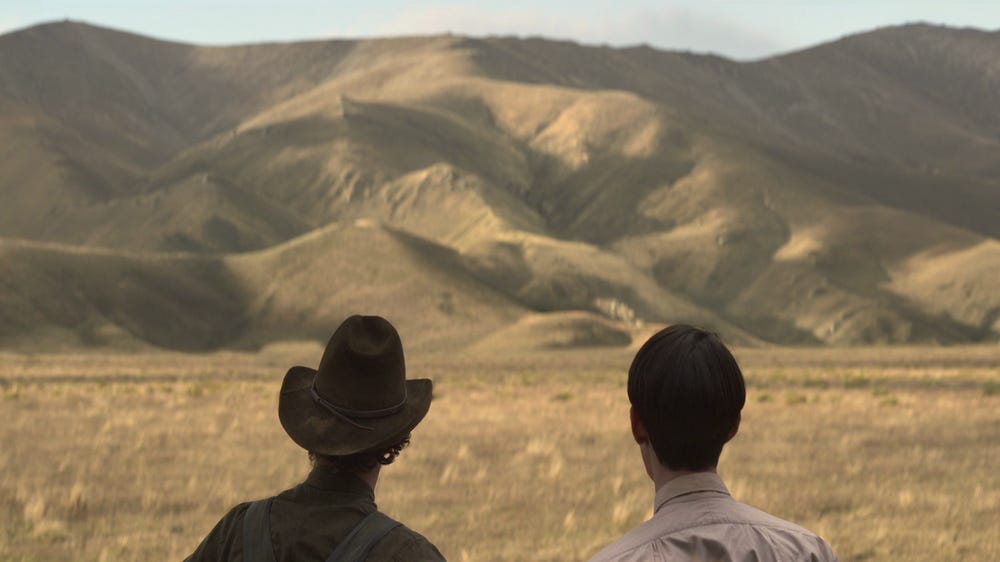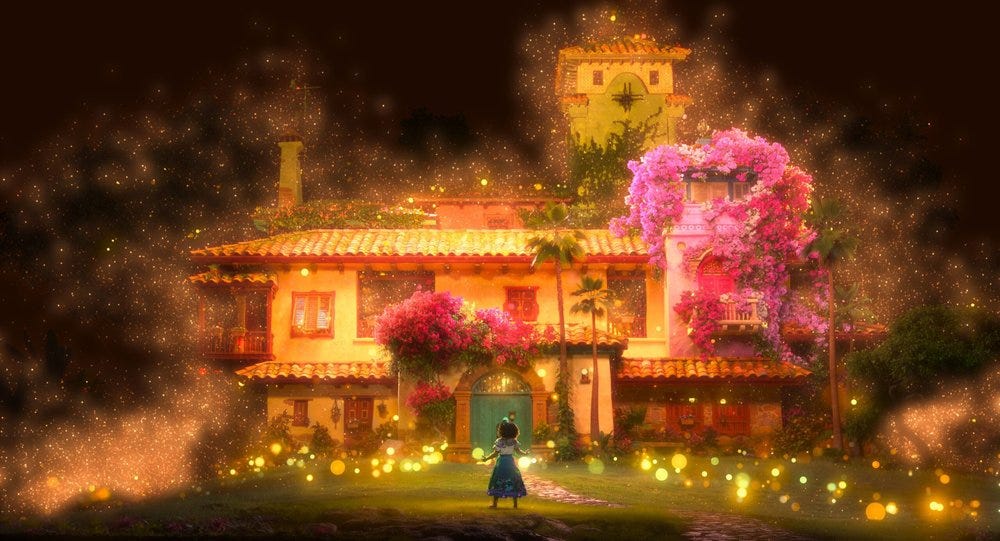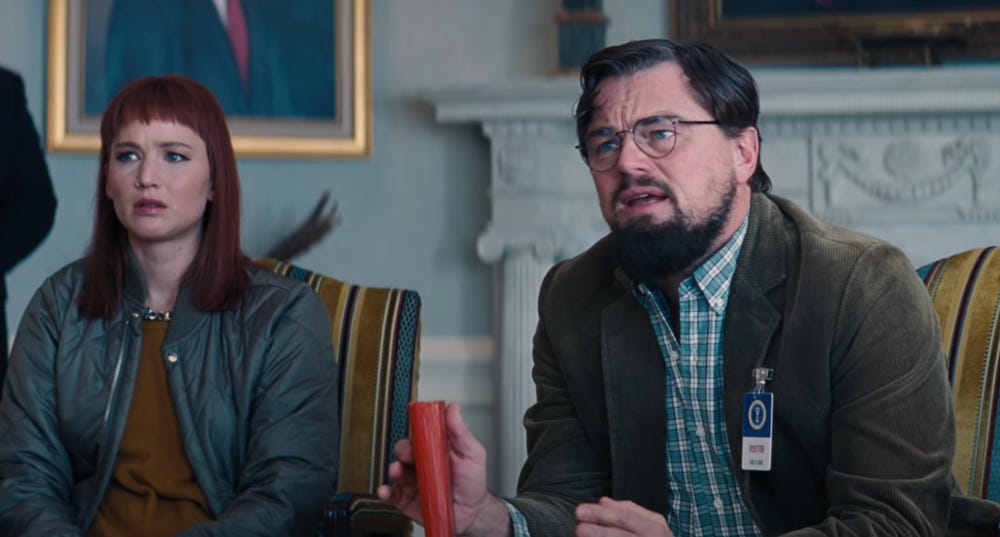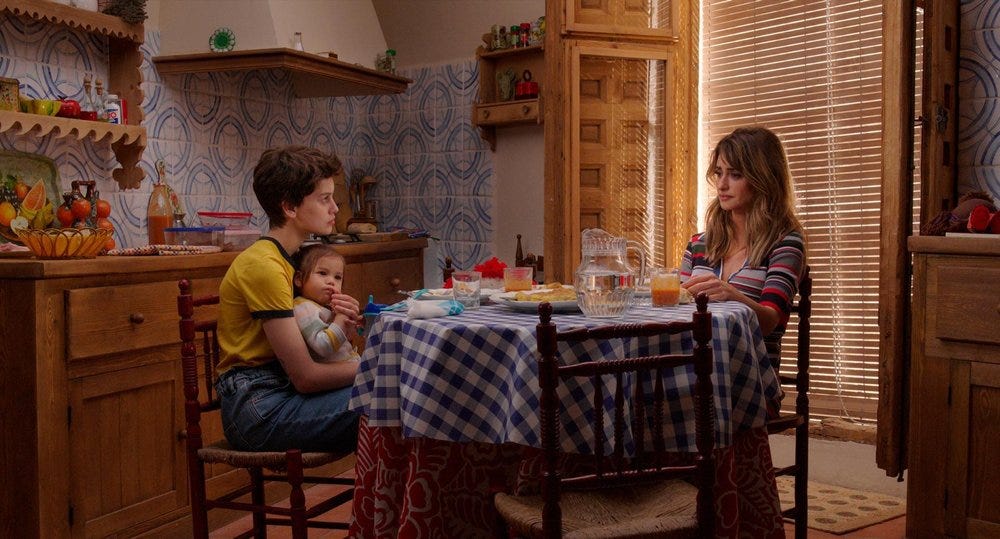Ranking the 94th Academy Awards Best Score Nominees
After an exhausting months-long awards season, the Oscars finally arrive this Sunday, and with it comes my favorite category, Best Original Score. I’m a film composer myself, so the category has always had a special place in my heart. I studied music composition in college, interned with Hans Zimmer (more on him later), and now I write music for award-winning films.
This is also a difficult year to talk about Best Original Score, as ABC and The Academy have made the decision not to air that award during their live broadcast. This has understandably been met with backlash from fans and filmmakers alike, and as a composer it’s disappointing to see the category I most identify with being shoved aside.
All of that to say, I have a lot of feelings about this year’s nominees and this year’s ceremony. So let’s dive right into the nominees for Best Original Score, in order of most likely to win.
Dune - Hans Zimmer
Far and away this year’s favorite to win Best Original Score is Hans Zimmer for his work on Dune. In typical Zimmer fashion, the score is bombastic, in-your-face, and pushes the boundaries of what a “musical score” can be defined as. Just look at his eclectic mix of instruments and you’ll understand why the score has garnered so much attention - not many film scores boast a combination of electric cellos, guitars, bagpipes, and duduks. Zimmer engineered new ways of creating music for the film, filtering vocals, reversing percussive beats, and mixing the score in a different method than a traditional orchestral score.
In addition, Denis Villeneuve’s sensory film gives the score many chances to shine. Sweeping wide shots, epic battle sequences, and vision montages are all propelled by Zimmer’s score front and center. Viewers likely won’t leave the film without noticing the score, and in a filmmaking landscape that often tries to subdue its use of music, Zimmer’s instead takes control.
Furthermore, the last two Oscar winners for best score have won the Golden Globe, BAFTA, and Oscar. Who won the Golden Globe and BAFTA this year? Zimmer. Awards precursors seem largely unreliable when it comes to the Oscars, but more often than not, best score is a consensus among most voting bodies, including The Academy. Dune’s musical score was in the awards conversation even before it was released, and it hasn’t lost its spot as the frontrunner since then.
So what’s stopping this frontrunner from winning? Not much, but there are a few factors, all largely unrelated to the music itself. Zimmer’s only Academy Award came nearly 30 years ago for The Lion King, and since then he’s received only ten nominations (compare that to 11 nominations for Alexandre Desplat in only 13 years). That seems like a remarkable oversight for one of the greatest film composers of all time.
No one can really quantify the reasons, but it appears that Zimmer isn’t well-liked by the industry, at least not compared to his peers like Desplat or John Williams. Critics point to his well-documented use of ghost composers as one reason for his lack of award nominations and wins (Variety wrote an article recently that not-so-subtly calls Zimmer out for this). Zimmer admittedly has gone to great lengths to credit his collaborators in recent years, but nevertheless, voters may be less willing to vote for a musical score they feel was written by a “committee.”
In addition, Zimmer has never shied away from the spotlight. There’s nothing inherently wrong with this, and this has undoubtedly led to his popularity among younger generations. But for a profession largely known for staying in the background, Zimmer seems to always find ways to get attention. He’s the subject of countless interviews, he routinely tours his music worldwide (including a 2017 Coachella performance), and makes his presence known through social media and brand sponsorships. It’s impressive from a business endeavor, but The Academy often looks to reward the humble artist over the outspoken entrepreneur.
Regardless, Zimmer’s inventive writing and precursor wins have him firmly set as the frontrunner for Best Original Score, a well-deserved second Oscar win for the composer. But let’s take a look at the competition...
The Power of the Dog - Jonny Greenwood
Jonny Greenwood, famously known as a member of the rock band Radiohead, has built an impressive body of work in film scoring over the past decade. Despite only having scored 9 films in his career, he’s received two Oscar nominations and nearly received a third before his There Will Be Blood score was disqualified from consideration.
Greenwood’s score for The Power of the Dog couldn’t be more different from Dune. Where Dune’s music is bombastic, The Power of the Dog is quiet and contemplative. Where Zimmer relies on atypical instrumentation and audio effects, Greenwood largely relies on a small string quartet. Greenwood’s score might not leave the same impression that Dune does, but it’s just as effective. Jane Campion’s unique western needed a unique musical score, and Greenwood delivers with some beautifully introspective music.
Despite being a Hollywood outsider, Greenwood has a lot of popularity within the Academy, likely due to his collaborations with renowned directors such as Paul Thomas Anderson, Jane Campion, and Pablo Larrain. He’s never won an Oscar, but due to the type of films he scores, he’s always in the race. For voters that don’t like Zimmer’s style (or attitude), Greenwood’s subtler score might be an appealing option, especially for a film in the thick of the Best Picture race.
Encanto - Germaine Franco
One word for why Encanto’s score is in the running: Bruno. Encanto’s songs, written by Lin-Manuel Miranda, have been a worldwide phenomenon, with “We Don’t Talk about Bruno” becoming Disney's first number-one song on the Billboard Hot 100 in the 21st century. Yes, this song somehow became more popular than Frozen’s “Let It Go.”
Germaine Franco’s charming score works seamlessly with Miranda’s songs to provide musical accompaniment to the Madrigal family’s journey in Encanto. The film doesn’t allow many standout moments for the score (most standout moments are vocal songs, not instrumental), but the main theme in particular is full of emotion and beauty.
Academy voters often seem to combine any and all music when voting, which is why I think Encanto earned a nomination in this category. A look back at recent movie musicals confirms this trend, with Mary Poppins Returns and La La Land receiving best score nominations in the past six years. I’m sure many voters thought, “Encanto’s music is great, so I’ll nominate the score.” In reality, they probably remembered the songs more than the score, but I certainly don’t want to detract from Franco’s wonder-filled music.
Also in Franco’s favor is the Academy’s much-needed recent recognition of female composers. Hildur Guðnadóttir was the first woman to ever win the Golden Globe, BAFTA, and Oscar for Best Original Score in 2019 for her work on Joker. This recent inclusion (as well as the slow, but steady inclusion of more female composers in film) opens a door for Franco that was previously tightly locked. Encanto’s chances may be slim, but never count out a Disney musical.
Don’t Look Up - Nicholas Britell
Possibly my personal favorite of the year, Don’t Look Up is a wonderfully quirky jazz-infused score by Nicholas Britell. Britell uses syncopated drums, a keyboard, and a small brass ensemble to round out this fun score. In addition to utilizing this style to great effect in the film, Britell also takes advantage of the film’s satirical nature with wonderful results. When a tech billionaire is giving a faux-inspirational speech, Britell uses a laughably uplifting musical cue to accompany it. When the President gives a patriotic speech aboard a Navy boat, Britell pulls out the musical fireworks, complete with snare drums and marching band brass. All this is to say, Britell seemed to have a blast writing this score, and it comes through tremendously in the film. Much like Dune, Don’t Look Up’s use of montages and dialogue-free scenes allow the score a chance to shine, leaving a lasting impression on viewers.
Another advantage for Britell is the career year he’s been having. His recent work on popular projects such as Succession, Cruella, and The Underground Railroad has thrust him into the national spotlight. Voters are seeing his name attached to critically-praised projects, and that kind of attention almost always increases your awards chances.
The main factor going against Britell is the film itself. Don’t Look Up has proven to be one of the year’s most controversial nominees. Some voters claim it’s a strong film with an urgent message, while others view it as sloppily made and poorly written. That kind of disparity didn’t prevent it from garnering nominations, but I can’t imagine such a contentious film gaining voting consensus in any category, even if the music has been universally praised.
Parallel Mothers - Alberto Iglesias
The nomination that most surprised me, Alberto Iglesias’ score for Parallel Mothers is a wonderful blend of latin percussion, atonal strings, and rhythmic woodwinds. While I’ve not yet seen the film and can’t speak to the music in context, the soundtrack album contains some impressive cues. The music’s atonality and lack of traditional harmony surprised me - it’s not a musical palette I’d expect to resonate with voters, but it clearly left enough of an impact to gain a nomination.
Alberto Iglesias has quietly made a big name for himself in Hollywood, with Parallel Mothers marking his fourth Best Original Score nomination in 16 years. Iglesias has also been a fixture at the Goya Awards (Spain’s annual film awards), where he’s garnered 18 nominations and an astounding 11 wins. His music is well-liked and consistently receives awards recognition, even if the films themselves aren’t always the main contenders outside of his score.
That being said, this score just doesn’t have much momentum going into the Oscars. The tonality is unfortunately too atypical to gain a mainstream following, and the film itself doesn’t have enough outspoken critical support to rally voters either. I think Parallel Mothers has the toughest path to victory, but it proved me wrong with its nomination, and it could prove me wrong again.
Final thoughts…
Hans Zimmer’s path to victory seems clear with Dune, but the Oscars, if anything, are unpredictable. This year’s nominees all have their strengths, both in the music itself and the composers’ popularity. My final ranking of the Best Original Score nominees are:
Dune
The Power of the Dog
Encanto
Don’t Look Up
Parallel Mothers


